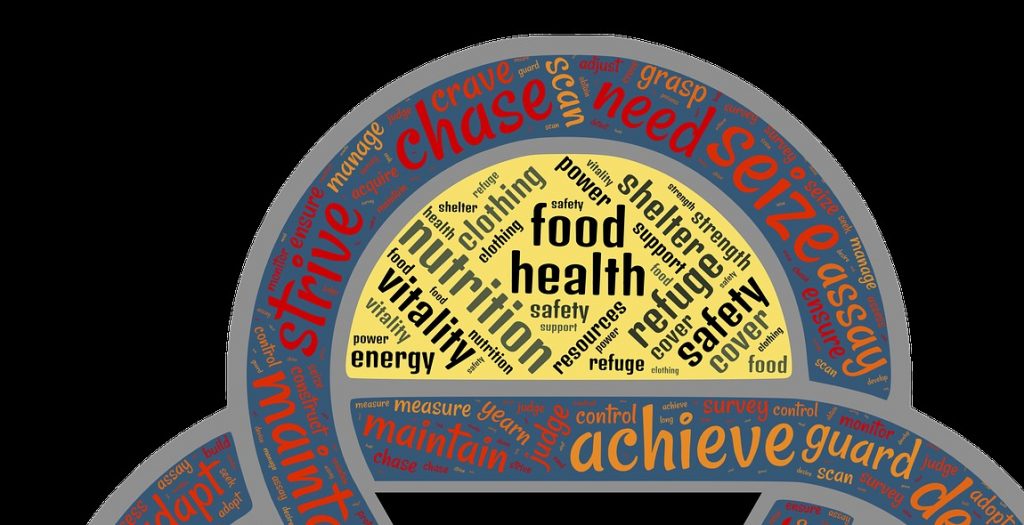Developing Adaptability: Thriving in a Changing World
In today’s fast-paced and ever-evolving world, adaptability has become a crucial skill for individuals and businesses alike. The ability to navigate through change, embrace uncertainty, and quickly adjust to new circumstances is essential for success in both personal and professional life.
In this article, we will explore the concept of adaptability and its importance in the context of a changing world. We will discuss why developing this skill is crucial for individuals and how it can positively impact their careers and overall well-being. Additionally, we will delve into strategies and techniques that can help foster adaptability, enabling individuals to thrive in dynamic environments.
Adaptability goes beyond mere resilience; it involves actively seeking opportunities for growth and learning from experiences. As the world continues to undergo rapid transformations, those who can adapt effectively will not only survive but also thrive in their pursuits. Whether it’s in the workplace, relationships, or personal development, being adaptable allows individuals to embrace change, remain flexible, and seize new opportunities.
Throughout this article, we will provide practical tips, real-life examples, and expert advice to help readers develop and enhance their adaptability skills. By the end, readers will have a deeper understanding of adaptability and the tools needed to thrive in an ever-changing world.
Understanding Adaptability
Adaptability refers to the ability to adjust and thrive in various situations and environments. It is the capacity to embrace change, learn new skills, and modify behaviors to meet the demands of evolving circumstances. In today’s fast-paced and unpredictable world, adaptability has become a crucial skill for success in both personal and professional realms.
What is Adaptability?
Adaptability involves being open-minded, flexible, and willing to embrace change. It requires individuals to let go of old habits and patterns and embrace new ways of thinking and doing things. Being adaptable means having the ability to quickly assess new situations, make informed decisions, and adjust one’s approach accordingly.
Why is Adaptability Important?
Adaptability is important because it enables individuals to navigate through uncertain and challenging times. In a rapidly changing world, those who can adapt are more likely to succeed and thrive. Organizations that foster a culture of adaptability are better equipped to respond to market shifts, customer demands, and technological advancements.
Furthermore, adaptability allows individuals to stay relevant and competitive in their careers. As industries evolve and new technologies emerge, those who can adapt and acquire new skills are more likely to remain employable and find new opportunities for growth.
The Benefits of Being Adaptable
There are numerous benefits to being adaptable:
- Resilience: Adaptable individuals are more resilient and better equipped to bounce back from setbacks and challenges.
- Increased productivity: Adaptable individuals are quick to learn and adjust, allowing them to be more productive in various situations.
- Enhanced problem-solving: Being adaptable means being able to think creatively and find innovative solutions to problems.
- Improved relationships: Adaptable individuals are more understanding and empathetic, which fosters better relationships with colleagues, clients, and customers.
- Opportunity for growth: Adaptable individuals are open to new experiences and willing to step out of their comfort zones, which leads to personal and professional growth.
In conclusion, adaptability is a vital skill in today’s ever-changing world. It allows individuals and organizations to navigate through uncertainty, seize opportunities, and thrive in dynamic environments.

Developing Adaptability Skills
In today’s fast-paced and ever-changing world, adaptability has become a crucial skill for individuals to thrive and succeed. Developing adaptability skills can help individuals navigate through uncertain situations, embrace change, and make effective decisions. Here are five key areas to focus on when developing adaptability skills:
1. Embracing Change
Adaptability starts with embracing change. Instead of resisting or fearing change, individuals with strong adaptability skills embrace it as an opportunity for growth and learning. They understand that change is inevitable and are open to new ideas and perspectives. By being flexible and adaptable, individuals can quickly adjust to new circumstances and find innovative solutions to challenges.
2. Cultivating a Growth Mindset
A growth mindset is essential for developing adaptability skills. Individuals with a growth mindset believe that their abilities and intelligence can be developed through dedication and hard work. They view failures and setbacks as opportunities to learn and improve. By cultivating a growth mindset, individuals become more resilient and better equipped to handle unexpected changes and challenges.
3. Building Resilience
Resilience is the ability to bounce back from adversity and maintain a positive mindset. Building resilience involves developing coping mechanisms, managing stress effectively, and maintaining a healthy work-life balance. Resilient individuals are better equipped to handle change and uncertainty, as they can adapt quickly and find solutions to overcome obstacles.
4. Enhancing Problem-Solving Skills
Adaptability requires strong problem-solving skills. Individuals with excellent problem-solving abilities can analyze situations, identify potential obstacles, and develop effective strategies to overcome them. By honing their problem-solving skills, individuals can adapt to new circumstances and navigate through challenges with ease.
5. Improving Decision-Making Abilities
Adaptability involves making sound decisions in uncertain situations. Individuals with strong decision-making abilities can gather and analyze information, evaluate options, and make informed choices. By improving their decision-making skills, individuals can adapt quickly to changing circumstances and make effective decisions that lead to positive outcomes.
Developing adaptability skills is crucial for thriving in a changing world. By embracing change, cultivating a growth mindset, building resilience, enhancing problem-solving skills, and improving decision-making abilities, individuals can navigate through uncertainty and seize opportunities for growth and success.
Practicing Adaptability in Different Areas
1. Personal Life
In our personal lives, practicing adaptability is crucial for navigating the ever-changing circumstances that come our way. One way to foster adaptability is by embracing a growth mindset. This involves recognizing that change is inevitable and viewing challenges as opportunities for personal growth and development.
Additionally, being open to new experiences and perspectives can help us adapt to different situations. By stepping out of our comfort zones and trying new things, we expand our knowledge and skills, making us more adaptable to change.
2. Professional Life
In the professional realm, adaptability is a sought-after skill as industries and job requirements evolve rapidly. Adaptable individuals are quick to learn new technologies, acquire new skills, and adjust their working methods to meet changing demands.
Moreover, maintaining a proactive approach to professional development and staying abreast of industry trends and advancements allows us to adapt to new challenges and seize opportunities for career growth.
3. Relationships
Adaptability plays a vital role in fostering healthy and fulfilling relationships. It involves being open to compromise, communication, and understanding, especially when faced with conflicts or changes in circumstances.
By practicing adaptability in relationships, we can effectively navigate different perspectives, accommodate the needs and preferences of others, and build stronger connections based on mutual respect and understanding.
4. Health and Well-being
Adaptability is crucial for maintaining optimal health and well-being. This involves being flexible in our approach to self-care and recognizing that our physical and mental well-being may require adjustments over time.
By adapting our exercise routines, dietary choices, and self-care practices to suit our changing needs, we can ensure that we are consistently supporting our overall health and well-being.
Overall, practicing adaptability in different areas of our lives allows us to thrive in a changing world. By embracing change, learning from new experiences, and staying open to different perspectives, we can navigate challenges, seize opportunities, and lead fulfilling and successful lives.
Overcoming Challenges to Adaptability
Developing adaptability is crucial in today’s rapidly changing world. However, there are several challenges that individuals often face when trying to embrace adaptability. By understanding and addressing these challenges, individuals can overcome them and thrive in a changing environment.
Fear of the Unknown
One of the primary challenges to adaptability is the fear of the unknown. Many individuals are hesitant to step out of their comfort zones and try new things because they are unsure of the outcome. To overcome this fear, it is important to focus on the potential benefits of adaptability. Embracing change can lead to personal growth, new opportunities, and increased resilience. By reframing the unknown as an exciting adventure, individuals can overcome their fear and embrace adaptability.
Resistance to Change
Another challenge to adaptability is resistance to change. People often prefer the familiar because it provides a sense of security and stability. However, resisting change can hinder personal growth and limit opportunities. To overcome resistance to change, it is important to cultivate a growth mindset. This involves acknowledging that change is inevitable and viewing it as an opportunity for learning and development. By focusing on the potential positive outcomes of change, individuals can overcome their resistance and embrace adaptability.
Lack of Self-Confidence
Lack of self-confidence can also hinder adaptability. Individuals may doubt their ability to navigate new situations or believe that they are not capable of adapting to change. To overcome this challenge, it is important to build self-confidence through self-reflection and self-improvement. Setting small, achievable goals and celebrating successes along the way can help individuals build confidence in their ability to adapt and thrive in a changing world.
Negative Thinking
Negative thinking can be a significant barrier to adaptability. When faced with change, individuals may focus on potential failures or negative outcomes, which can prevent them from embracing new opportunities. To overcome negative thinking, it is important to practice positive self-talk and cultivate a mindset of optimism. By reframing challenges as opportunities for growth and focusing on the potential positive outcomes of adaptability, individuals can overcome negative thinking and develop a more adaptive mindset.
By addressing these challenges head-on, individuals can develop the necessary skills and mindset to thrive in a changing world. Embracing adaptability opens up a world of possibilities and allows individuals to navigate the ever-evolving landscape with confidence and success.
Conclusion
In today’s rapidly changing world, adaptability has become a crucial skill for individuals and businesses alike. The ability to embrace change, learn new skills, and adjust strategies is what sets successful people and organizations apart.
Developing adaptability is a continuous process that requires a growth mindset and a willingness to step out of one’s comfort zone. By cultivating a mindset of curiosity and a hunger for learning, individuals can stay ahead of the curve and thrive in any situation.
Throughout this article, we have explored various strategies and techniques to enhance adaptability. We discussed the importance of self-awareness and mindfulness in understanding our strengths and weaknesses, as well as the significance of building a diverse network to gain different perspectives.
Furthermore, we delved into the power of embracing failure as a learning opportunity and the value of developing a growth mindset to overcome challenges. Additionally, we highlighted the significance of continuous learning and staying updated with the latest industry trends.
By incorporating these practices into our lives, we can become more adaptable, resilient, and better equipped to navigate the ever-changing landscape of the modern world.
Remember, adaptability is not just a skill; it is a mindset. It is about embracing change, being open to new ideas, and continuously evolving. By developing adaptability, we can not only survive but also thrive in a changing world.
